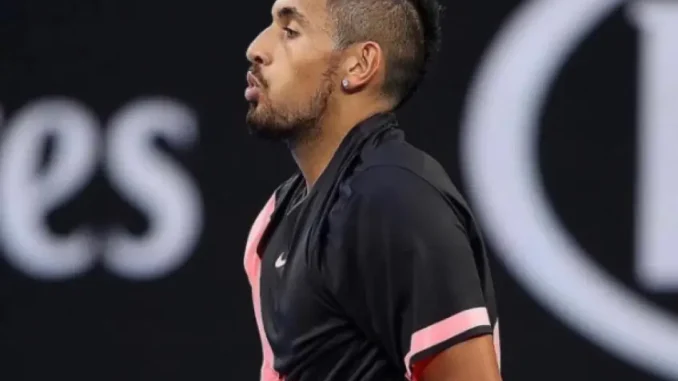
Kyrgios’s Skepticism Casts Shadow Over Sinner’s WADA Settlement: A Cloud of Doubt Lingers
The world of professional tennis, a stage often illuminated by displays of athleticism and sportsmanship, has recently found itself embroiled in controversy, with Nick Kyrgios, the ever-outspoken Australian star, at the center of the storm. Kyrgios’s pointed questioning of Jannik Sinner’s “innocence” following a settlement with the World Anti-Doping Agency (WADA) has ignited a firestorm of debate, raising complex questions about transparency, accountability, and the delicate balance between privacy and public trust.
The controversy stems from Sinner’s recent settlement with WADA, the details of which remain shrouded in confidentiality. While the specifics of the settlement haven’t been publicly disclosed, the mere fact of its existence has been enough to pique Kyrgios’s interest and fuel his skepticism. Known for his unfiltered commentary and willingness to challenge the status quo, Kyrgios didn’t hesitate to voice his concerns, casting a shadow of doubt over Sinner’s handling of the situation. His pointed remarks, delivered with his characteristic bluntness, have resonated with some, while others have criticized them as being unnecessarily provocative and potentially damaging to Sinner’s reputation.
Kyrgios’s central question revolves around the notion of “innocence.” He has publicly questioned whether Sinner is truly innocent given the circumstances of the WADA settlement. While stopping short of explicitly accusing Sinner of wrongdoing, Kyrgios’s comments suggest a deep-seated suspicion, raising the specter of potential violations and casting a cloud of doubt over Sinner’s conduct. This implicit challenge to Sinner’s integrity has added a layer of complexity to the situation, turning what might have been a private matter into a subject of public scrutiny.
The lack of transparency surrounding the WADA settlement has only served to amplify the controversy. The confidentiality agreements that often accompany such settlements, while designed to protect the privacy of the athletes involved, can also inadvertently fuel speculation and mistrust. In the absence of concrete information, rumors and conjecture can easily fill the void, leading to a climate of uncertainty and suspicion. This lack of clarity has allowed Kyrgios’s questions to gain traction, further muddying the waters and raising concerns about the fairness and effectiveness of the anti-doping process.
Kyrgios’s outspokenness, while often controversial, is not entirely without precedent. He has frequently used his platform to challenge what he perceives as injustices or inconsistencies within the world of professional tennis. His willingness to speak his mind, even when it means ruffling feathers, has earned him both admiration and criticism. While some see him as a much-needed voice of dissent, others view his pronouncements as reckless and disruptive. In this instance, his questioning of Sinner’s “innocence” falls squarely within this pattern of challenging established narratives and demanding greater transparency.
The situation involving Sinner and WADA highlights the delicate balance between an athlete’s right to privacy and the public’s right to know. While athletes, like any individual, deserve a degree of privacy, they also occupy a unique position in the public eye, particularly when it comes to matters of integrity and fair play. The public has a vested interest in ensuring that athletes are competing clean and that the integrity of the sport is being upheld. When questions arise about potential violations, the public’s desire for transparency and accountability can come into conflict with an athlete’s right to confidentiality.
The controversy surrounding Sinner’s WADA settlement also underscores the complexities of the anti-doping system itself. While designed to protect the integrity of sports, the system is not without its flaws. The confidentiality agreements that often accompany settlements can create a perception of secrecy and a lack of transparency. Furthermore, the process of investigating and adjudicating potential violations can be lengthy and complex, sometimes leading to delays and uncertainties. These inherent challenges can contribute to a climate of suspicion and make it difficult for athletes to clear their names, even when they are truly innocent.
The fallout from Kyrgios’s comments and the ongoing debate surrounding Sinner’s WADA settlement serve as a reminder of the importance of open communication and transparency in the world of professional sports. While respecting the privacy of athletes is essential, it is equally important to ensure that the public has confidence in the integrity of the sport. Moving forward, greater clarity and more open communication about the anti-doping process could help to alleviate concerns and foster a greater sense of trust between athletes, governing bodies, and the public. The current situation serves as a valuable, albeit controversial, opportunity to examine and potentially improve the mechanisms in place to ensure fair play and maintain the integrity of professional tennis.
Leave a Reply